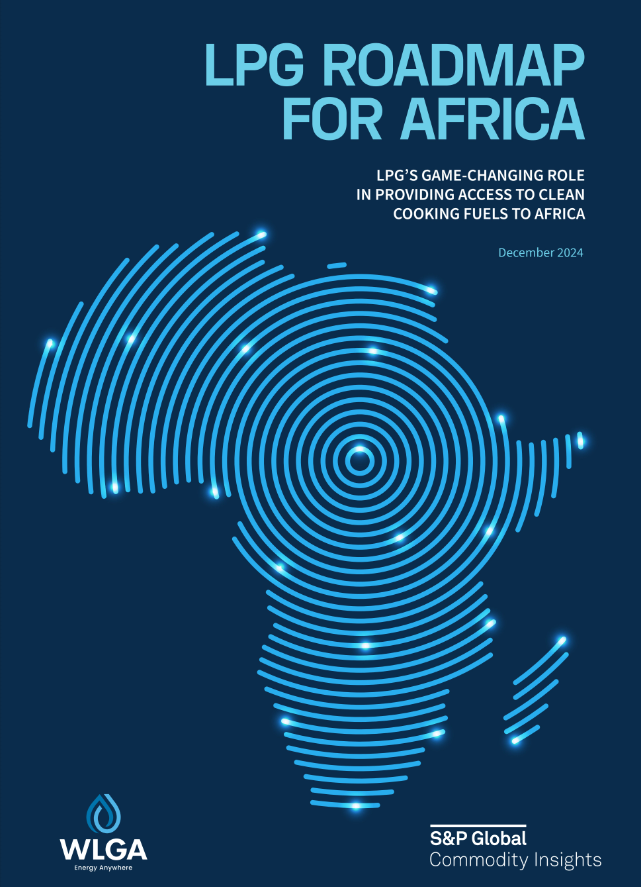WLGA launches roadmap for clean cooking access in Africa
The World Liquid Gas Association (WLGA) launched a new roadmap to expand access to clean cooking solutions across Africa by increasing the availability of liquefied petroleum gas (LPG).

The roadmap was authored by S&P Global Commodity Insights and commissioned by the Cooking for Life Africa (CFLA) Task Force. The CFLA Task Force is an industry initiative including Amtrol Alfa, Equinor, Hexagon Ragasco, Nigerian National Petroleum Corp. (NNPC), Oryx Energies, Petredec, S&P Global, SHV Energy and Total Energies.
“An equitable, fit-for-purpose transition means empowering marginalized communities by reducing global energy poverty and fostering a more inclusive future where everyone has the opportunity to thrive,” says James Rockall, CEO of the WLGA. “Access to clean cooking supplies will increase economic opportunities and standards of living while reducing carbon emissions and environmental impacts. While the roadmap is an important step forward, the Cooking for Life Africa Task Force will work with stakeholders across the public and private sectors to realize these ambitions.”
The roadmap
The LPG Roadmap for Africa provides three calls to action for the public and private sectors to achieve full access to clean cooking in sub-Saharan Africa by 2030.
The three calls to actions include:
- Establishing clear, enforceable regulatory frameworks to scale the LPG market in the region.
- Implementing a consumer financing and payment plan to overcome economic barriers.
- Investing in infrastructure and roads to improve storage, distribution and delivery networks in more remote areas.
Nearly 2.5 billion people (one-third of the global population) today are without access to clean cooking solutions, including over 900 million people in Africa, the WLGA reports. In remote villages and urban slums, many families resort to traditional biomass fuels like coal, wood and dung, which emit harmful and toxic fumes and contribute to climate emissions and deforestation.
“This roadmap is a significant step toward achieving sustainable clean energy access across Africa,” says Jimmy Bowes, president of building products for Worthington Enterprises. “It provides a comprehensive strategy to enhance the adoption of LPG as a clean cooking fuel. As a leading global supplier of LPG cylinders that are essential for safe and efficient fuel storage and distribution, Worthington Enterprises and its Amtrol-Alfa and Ragasco products will help ensure accessibility for all communities. We are proud of how our industry has come together and believe by executing this roadmap we will have a profound impact on improving public health and environmental outcomes in the region.”
Benefits of switching to LPG
According to the WLGA, the benefits of African households switching from firewood to LPG as a cooking fuel include:
- Reducing indoor air pollution from particulate matter by 98 percent, significantly decreasing the number of premature deaths and health conditions caused by household air pollutants.
- Saving 1.2 million hectares of forest per year, which is equivalent to nearly one-quarter of current global deforestation.
- Decreasing emissions of black carbon (or soot), a powerful greenhouse gas, by 117 million tons of CO2 equivalent per year, nearly offsetting Nigeria’s annual CO2 emissions.
- Decreasing 279 million tons of CO2 per year, which is roughly equivalent to the annual emissions from mid-sized countries such as Taiwan and Malaysia.
“Many households in Africa still rely on traditional cooking fuels like wood and charcoal,” says Steven Sels, COO of SHV Energy. “Convincing these households to switch to LPG requires significant investment in education, marketing and infrastructure.”
The WLGA
The WLGA is the authoritative voice for the global liquid gas industry, representing the full liquid gas value chain. According to the association, its primary goal is to add value to the sector by driving premium demand for liquid gas while also promoting compliance to good business and safety practices.
With over 300 members in 125 countries, the association brings together private and public companies involved in one, several or all activities of the industry, develops long-term partnerships with international organizations and implements projects on local and global scales.
Related Articles
US companies celebrate clean cooking initiatives at LPG Week















